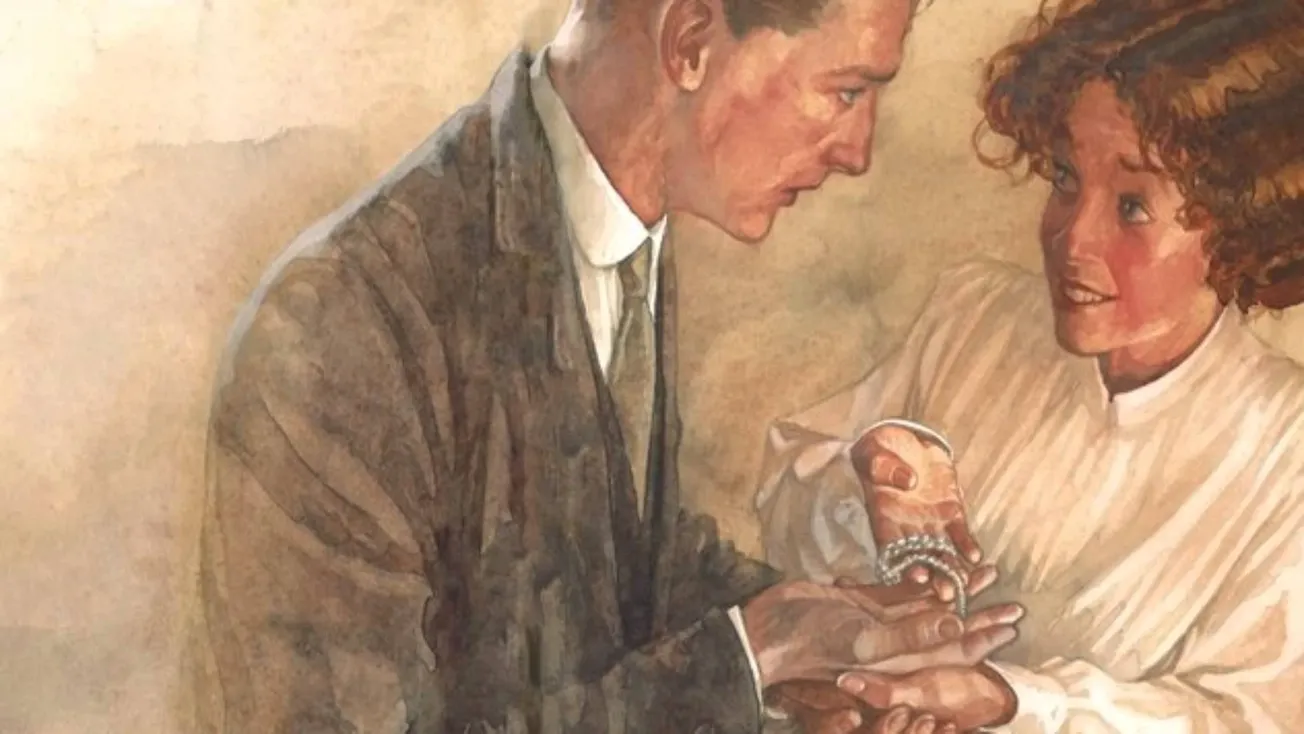Table of Contents
Katherine Baker
mercatornet.com
Katherine Baker is a freelance writer who lives in Western Pennsylvania.
A couple of years ago there was quite a kerfuffle about the holiday duet, “Baby, its Cold Outside”. This song, from 1944, features a dialogue which some people might describe as a man trying to talk a woman into staying longer at his place on a snowy night.
The criticism said the song was really about a predatory man attempting a date rape and the critics managed to get the song removed from many radio playlists.
Older women who remember those days said that, far from being a male chauvinist song, it was actually a feminist anthem in which an unchaperoned woman tries to talk herself into doing what she wants to do in spite of the conservative social standards of the time. Maybe there is a little bit of both going on?
I’m not into this new penchant for censorship, yet I wonder what those same critics would make of Santa, Baby which seems to me much less ambiguous?
This song from 1953, common on radio play lists around Christmas, features a woman singing seductively to Santa of all the things she wants him to bring her when he “hurries down the chimney tonight”: a sable fur, “a ’54 convertible too, light blue,” a yacht, “a duplex, and checks,” Tiffany diamonds and finally a ring (“I don’t mean on the phone”) apparently in anticipation of his proposal of marriage.
It is certainly true that men and women in love enjoy giving and receiving presents from one another, but the woman’s claim of being an “an awful good girl” rings false next to her reasoning: “think of all the fellows I haven’t kissed”. It seems to me this song illustrates a parasitical relationship where there is no real love, just use.
Are men who pressure women into having sex exhibiting strength or weakness? Are women who use sexuality to get money and favors exhibiting strength or weakness? It’s not clear. Could it be that men and women are capable of taking advantage of the weaknesses of the opposite sex while capitalizing on their personal strengths?
We want our sons to value the women they love for who those women are and not merely use women for sex. But men and women both wish to be loved for who they are. Men do not want to be used any more than women do. It is right to teach our sons not to objectify women; it is also a good idea to teach our daughters not to objectify themselves, nor use men for what they can get out of them.
The ways women hurt each other, as well as men and children, are usually impossible to prosecute. Recently there has been a movement to make men accountable for sexual sins and various hashtags were mobilized. I am guessing if a similar call for women to be held socially accountable for their selfish and destructive behavior it would not go over as enthusiastically. I can’t quite figure that out.
Is it because we don’t really believe women to be capable of evil or maybe just that we think they are not responsible enough to be held accountable for it? Or is it because it just seems mean? Are we all in denial about women’s capacity for evil? And if we are, isn’t that sexist?
We seem to hold, that men who are used and discarded by rapacious women suffer less than women used and discarded by lascivious men. But I find that sexist and rather unbelievable.
Of course, rape and murder and violence (the crimes that men do at three times the rate of women) are objectively worse than seduction or theft. It is also true that men’s rate of suicide is 3.54 times the rate of women, their rate of death by drug overdose is 68 percent higher than that of women, and they have double the rate of alcoholism of women. And that is just a fraction of the negative outcomes I could cite.
I wonder why men’s negative outcomes are so much worse than women’s? Could it be there are ways men are more vulnerable than women? The data seems to suggest that. And if so, is it true vulnerability or is it just inferiority? And if it is inferiority, should that be met with social judgment or social care?
Somehow men should always be called out and women should never be called out. Maybe the idea is men should be tough enough to take what women dish out? Sounds sexist to me, but even if that is true, what about infants and children? Should they be tough enough to take what their mother or other women dish out?
Our culture has a hard time even admitting the possibility of predatory or parasitic female behavior, or if we do, we don’t seem to think it’s ever as bad as anything a man can do. And I am not sure what that indicates about our true opinions on the issue of equality between men and women.
When women have negative outcomes, we look for causes. I suggest we do the same for men. For example, if the female voice from Santa, Baby was your mother (a woman who seduces men and values them merely for what they can provide for her) what kind of person are you likely to become?
I do not believe a woman’s behavior is less significant than a man’s behavior, and not just because I believe the sexes equally significant people but because the evidence is all around me of the pain women cause. I suggest that in some ways women do more damage (sometimes with objectively less evil behavior) because there are ways that men, and certainly children, are weaker than women. Women are formidable opponents of one another.
Of course, there is more than just predation or parasitism; there is a third way: mutualistic relation. We use this term in natural science as opposed to either predation or parasitism to describe how animals of different species sometimes manage to work together, each benefiting from the relationship. Not only is this possible for men and women it should be our aim. I believe we can rise above the constant cycles of predation and parasitism toward something better.
Consider the favorite holiday story, The Gift of The Magi, a famous tale by O. Henry. In it we encounter Jim and Della, a poor young couple each trying to come up with the perfect Christmas gift for each other in a very lean time. If you don’t know the story you should follow the link and read it now before I spoil it for you. It’s short.
Now, there were two possessions […] in which they both took a mighty pride. One was Jim’s gold watch that had been his father’s and his grandfather’s. The other was Della’s hair. Had the queen of Sheba lived in the flat across the airshaft, Della would have let her hair hang out the window some day to dry just to depreciate Her Majesty’s jewels and gifts. Had King Solomon been the janitor, with all his treasures piled up in the basement, Jim would have pulled out his watch every time he passed, just to see him pluck at his beard from envy.
The abridged version is that Della’s great love for Jim causes her to sell her hair (that was a thing one could do in 1905) to buy Jim a chain for his pocket watch, only to find that Jim, in his great love for Della, has sold his pocket watch to buy her the large jeweled combs she had been admiring, meant to be worn nestled in her voluminous elaborate upswept hair, which, in light of her new boyish pixie cut, are now useless.
O. Henry ends his simple story like this:
The magi, as you know, were wise men – wonderfully wise men – who brought gifts to the Babe in the manger. They invented the art of giving Christmas presents. … And here I have lamely related to you the uneventful chronicle of two foolish children in a flat who most unwisely sacrificed for each other the greatest treasures of their house. But in a last word to the wise of these days let it be said that of all who give gifts these two were the wisest. Of all who give and receive gifts, such as they are wisest. Everywhere they are wisest. They are the magi.
Marriage is hard, and if you are fortunate it ends in death. If you don’t love someone enough to face poverty and suffering with them, don’t marry. If you’ve chosen to marry and want that to be a success, be to your spouse the sort of person you need them to be to you, come what may.
Please share this BFD article so others can discover The BFD.









